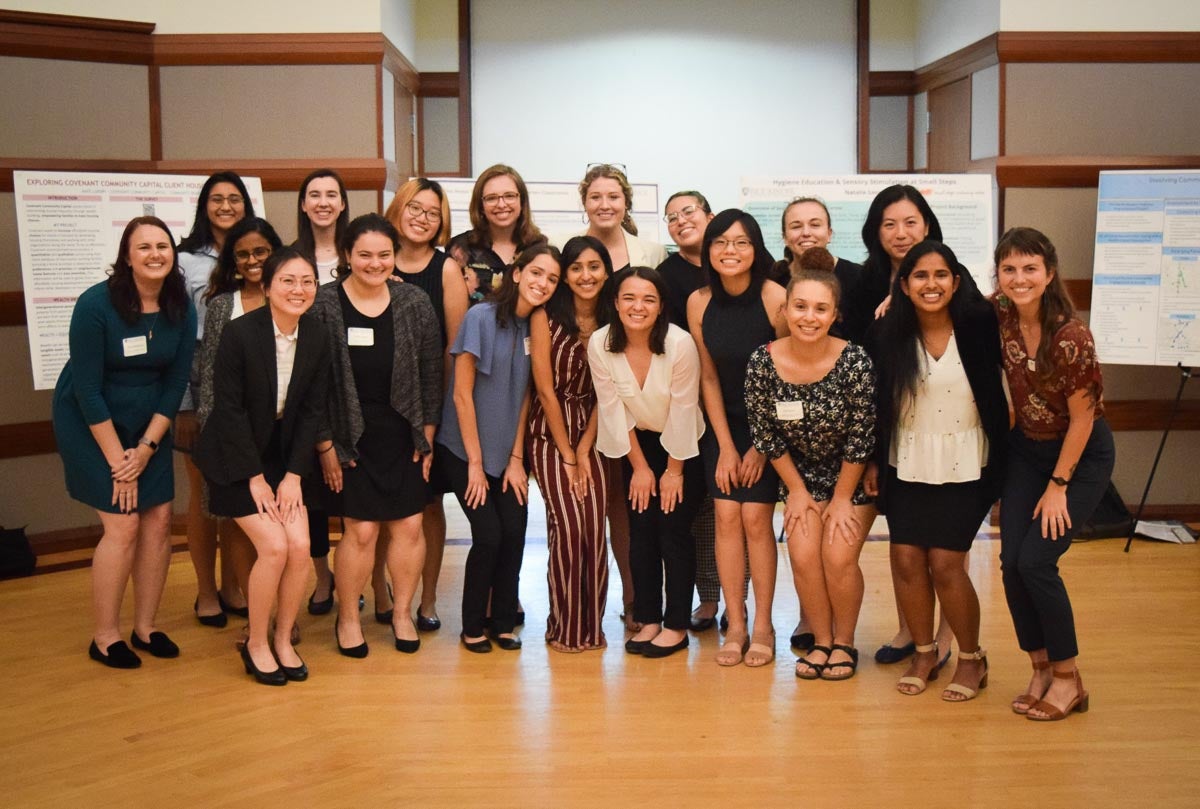Over a third of the census tracts in Harris County are classified as “high-poverty” (i.e. more than 20 percent of the fall below the poverty line), according to research by the Kinder Institute.
By partnering with community organizations located within some of these high-poverty neighborhoods, fellows carry out projects that work toward alleviating poverty and inequality within Houston. The program recently completed its eighth year at Rice, with 17 student fellows participating in the 2018-2019 cohort.
This past year’s cohort worked with a variety of community organizations focused on serving Houston’s disadvantaged neighborhoods. Many of the partner organizations are located in Houston’s Fifth Ward, and others are located in other high-poverty areas throughout the metropolitan area. Fellows are matched with partner organizations during the fall semester and intern 5-7 hours per week with their community organizations throughout the spring.
Students participating in the program represent a variety of majors and career goals; the areas of focus among partner organizations align with these diverse student interests. Students concerned with issues around education can find their interests shared by Small Steps Nurturing Center, School Literacy and Culture, or Yes Prep Fifth Ward. Fellows who care about inequality in housing and development issues can contribute to initiatives at Avenue CDC, Covenant Community Capital, or Fifth Ward Community Redevelopment Corporation. Both BakerRipley and Legacy Community Health provide a focus on health and wellbeing, and Air Alliance tackles issues around public health and the environment.
As students observe throughout the program, poverty and inequality are complex, multifaceted issues. Collectively, Community Bridges’ partner organizations combat the many ways that inequality is manifested in the urban context.
During their internships, fellows dedicate their time toward developing a specific project. Fellows work toward creating a sustainable contribution to the partner organization, by producing information, assessments or interventions that can be applied by the partner organizations for years to come. Members of last year’s cohort assisted organizations with implementing existing programs and conducted research for future initiatives within the communities. Fellows had the opportunity to apply and develop a variety of methodological skills in their projects, including creating maps, conducting interviews and analyzing survey data.
For example, fellows Allison Yelvington and Aurora Kesler, working with Air Alliance, assisted with collecting and analyzing data for a Health Impact Assessment to better understand the implication of current highway expansions. In their internships working with preschool-age children at Small Steps, Radhika Patel applied occupation therapy techniques to help develop fine motor skills, while Natalie Saenz developed a health and hygiene lesson plan on washing hands and eating healthy foods. Jennifer Fu and Ginger Hooper, working on the Juvenile Justice Diversion Program at the Fifth Ward CRC, conducted research on measuring recidivism and gathered data on juvenile justice in Houston. Together, the projects developed by last year’s fellows contributed to our understanding of poverty-related dynamics and toward alleviating the impacts of inequality within the Houston community.
Community Bridges fellows combine their time in the community with coursework on urban inequality. Readings and assignments on topics such as wealth inequality, health disparities and housing issues provide empirical context for what they observe first-hand at their internships. Having concomitant classroom discussion time gives students a chance to reflect on their experiences. Fellows apply sociological theories to their own observations and use their own experiences in the field to contextualize the empirical research.
As the instructor, I have enjoyed seeing how the experiential component fosters a deeper understanding of the sociological material. But beyond the benefit within the classroom, the empirical research informs the initiatives that fellows pursue in their internship projects. The Community Bridges program provides students with the opportunity to take their knowledge and skills out of the classroom, working toward making Houston a more equitable and livable city for all its residents.
For additional information on the Community Bridges program, past student projects, or community partners, visit the webpage here.
Ellen Whitehead was the instructor of the Community Bridges program during the 2017-2019 semesters. She received her PhD in Sociology from Rice University and will begin as an assistant professor at Ball State University in Fall 2019.

